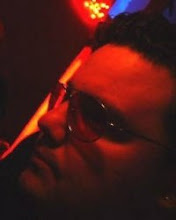 Like many important events of the 1980s, my experience of the Tiananmen Square massacre results from news reports preempting my Saturday morning cartoons. I'm at my grandparents' house where I stay most Saturdays, it's a warm day in early summer and I probably have a million outdoor activities planned that will be postponed for another day as I sit unmoving, transfixed by the events unfolding on television in place of my beloved Kidd Video. I'm a middle class kid in the suburbs of New Jersey. I'm in no way ignorant of current events or other cultures but the world beyond my everyday experience, let alone my national border, is still distant and ethereal, unconnected to my daily life, but these images of horrifying, darkness shrouded violence will bring the reality of the outside world cascading in to my grandmother's front room.
Like many important events of the 1980s, my experience of the Tiananmen Square massacre results from news reports preempting my Saturday morning cartoons. I'm at my grandparents' house where I stay most Saturdays, it's a warm day in early summer and I probably have a million outdoor activities planned that will be postponed for another day as I sit unmoving, transfixed by the events unfolding on television in place of my beloved Kidd Video. I'm a middle class kid in the suburbs of New Jersey. I'm in no way ignorant of current events or other cultures but the world beyond my everyday experience, let alone my national border, is still distant and ethereal, unconnected to my daily life, but these images of horrifying, darkness shrouded violence will bring the reality of the outside world cascading in to my grandmother's front room.The post-gulf war technology that journalists wield today didn't exist then so when the PRC cleared international press from the square and cut the satellite feeds the reporting was plunged into darkness. Frantic reporters shouted down scratchy telephone lines over shadowy pieces of smuggled footage and repeated images taken the weeks before of the young protesters, sunlight on their faces, with no knowledge of the horrors to come. I know that the image from the following morning of the brave solitary figure standing against a line of tanks is the iconic image of the massacre for a culture founded on the cult of the individual. For me, however, it was the images shot weeks before the crack down, of a group of people larger than any I had yet seen, all standing together, smiling in their conviction, making their mere presence a statement of political intent, their occupation of physical space a defiant gesture, locked arm and arm singing out with one voice a song I would later learn was The Internationale. These images locked in stark and tragic juxtaposition with the crackling telephone line reporting of violent repression, mass chaos and raging fires punctuated by automatic weapon fire and desperate shouting are the images that I carried with me from June 4, 1989 into adulthood.
My faith in governments to protect their people and to enact the will of those people above their own interests has never recovered from that day. It was torn to tatters not only by the oppressive acts of the PRC but by the pitiful actions of my own government which was willing to put its own political and economic gains ahead of the lives of young libertines who had naively looked to the US as a beacon of freedom and justice. I have since found myself in a number of strange and tense protest situations, from the pitiful group of fifteen that shouted in vain in the park against our university's inhumane treatment of animals, to the anti-WEF protests just after 9/11 where the percussive hum helicopter rotors drowned out the chanting and we all knew that we stood in the sights of a hundred sniper rifles; or the marches against invasion of Iraq that saw my girlfriend and I constantly scrambling from under the hooves of trampling horses. In all these mad and dangerous situations I've always found a strange calm of conviction and it may be that I believe that in my resistance I owe this much and more to a group of brave young students that I watched be massacred by their own government now twenty years ago.
I'm a pretty rational person, but I have a rather irrational faith in the power of of people united in spirit to stand up against the forces of oppression. The evidence that street protests in the Untied States are capable of effecting social and political change is not strong. The current political and media climates in this county do not suffer the street level activist well. It often appears that this form of political expression is antiquated and futile, but I have always held the conviction that for an individual to turn their physical presence into on a statement of conviction, to have their occupation of physical space be an act of resistance is an integral part of the democratic process and essential to the maintenance of liberty in a society. I think this conviction is grounded in lessons I learned sitting in my grandmother's front room watching a million brave Chinese citizens stand firm against oppression twenty years ago today.


No comments:
Post a Comment